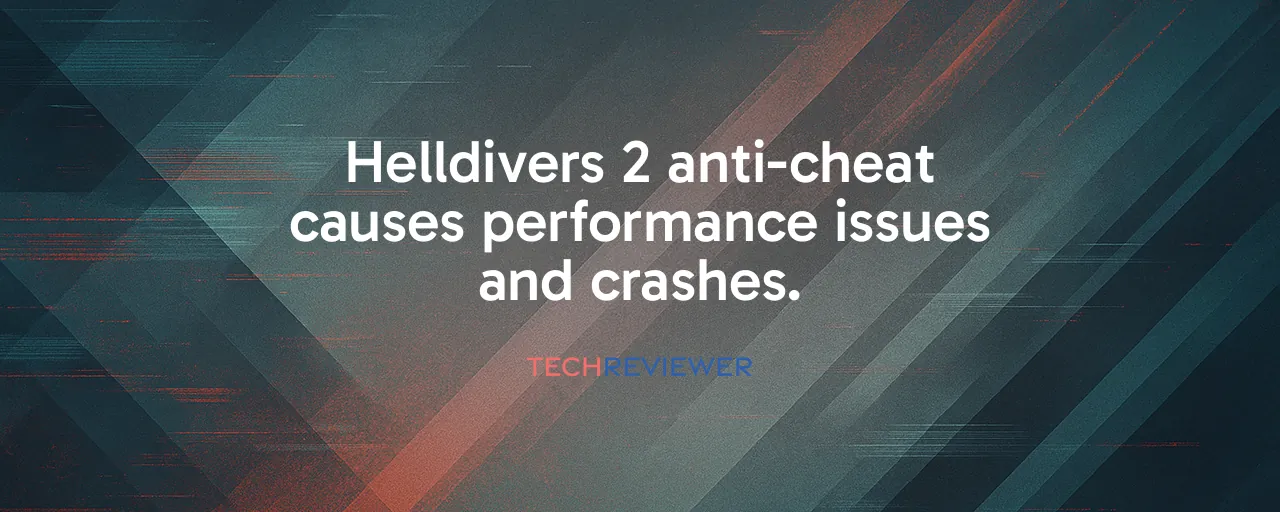A Cooperative Game's Unexpected Battle
Helldivers 2, Arrowhead Game Studios' hit cooperative shooter, thrives on teamwork, with players joining forces to battle alien hordes. Yet, a different kind of conflict has emerged, one pitting players against the game's anti-cheat system, GameGuard. Complaints about performance issues, from stuttering framerates to system crashes, have pushed Arrowhead's CEO, Shams Jorjani, to promise an investigation into the software after the next patch. This saga reveals a deeper tension in gaming: balancing security with a smooth player experience.
Why GameGuard Stirs Controversy
GameGuard, developed by INCA Internet, operates at the kernel level, granting it deep access to a player's system to detect cheating tools. In Helldivers 2, players report that this invasive approach causes lag, extended load times, and even blue-screen crashes, especially on PCs with varied hardware like AMD components. The game's massive 150GB installation size on PC, compared to 36GB on consoles, compounds frustration. Players question why a cooperative game, where cheating doesn't directly harm others, needs such heavy-handed protection.
The debate isn't new. GameGuard's history includes performance complaints across other titles, with its continuous memory scanning clashing with modern hardware and software like GPU management tools. Arrowhead initially dismissed these concerns, with Jorjani claiming no evidence of performance impact. But relentless player feedback on Discord, citing real-world issues like dropped lobbies and system freezes, forced a shift, with the studio now prioritizing a closer look.
Lessons From Helldivers 2 and Valorant
Helldivers 2's struggle mirrors Riot Games' experience with Vanguard, the kernel-level anti-cheat for Valorant. Launched in 2020, Vanguard faced backlash for its 24/7 system monitoring, raising privacy fears among players worried about data collection. Unlike Helldivers 2, Valorant's competitive nature justified robust security to ensure fair matches, yet the controversy highlighted how kernel-level systems can erode trust if not transparent. Riot responded with detailed explanations of Vanguard's operations, a move Arrowhead could emulate.
Both cases teach a clear lesson: players demand transparency and minimal performance impact. Helldivers 2's cooperative focus makes GameGuard's invasiveness feel excessive, while Valorant's competitive stakes make players more forgiving of trade-offs. Arrowhead's delay in addressing concerns, compared to Riot's proactive communication, underscores the need for swift, open dialogue to maintain community trust.
The Broader Anti-Cheat Dilemma
The gaming industry faces a growing challenge as anti-cheat solutions evolve. Kernel-level systems like GameGuard offer unmatched detection but risk system stability and privacy. Alternatives like Easy Anti-Cheat, used in games like Fortnite, provide lighter performance impacts and free licensing, pressuring older solutions like GameGuard, which costs developers around $12,000 annually. Emerging AI-driven systems analyze player behavior server-side, reducing client-side strain but struggling with sophisticated cheats.
Players also raise ethical questions. In cooperative games, cheating might ruin progression for others, as Jorjani noted, with reports of cheaters flooding sessions with unearned resources. Yet, kernel-level access feels like overkill to many, especially when it conflicts with accessibility tools or Linux systems, excluding players with non-standard setups. The industry must find a balance, perhaps through hybrid systems combining server-side checks with limited client-side monitoring.
What Lies Ahead for Helldivers 2
Arrowhead's commitment to investigate GameGuard signals a turning point, but the path forward is tricky. With Helldivers 2's Steam reviews dipping to "mixed" after recent updates, restoring player confidence is critical. Sony, as publisher, has a stake in ensuring the game remains a cross-platform hit. Exploring alternatives like Easy Anti-Cheat or server-side solutions could ease performance woes, but integration takes time and resources.
The broader industry is watching. Microsoft's push to limit kernel-level access after the 2024 CrowdStrike outage could force a rethink of anti-cheat strategies. For now, Helldivers 2 players await Arrowhead's next moves, hoping for a fix that keeps their galactic battles smooth and fair without compromising their systems.
